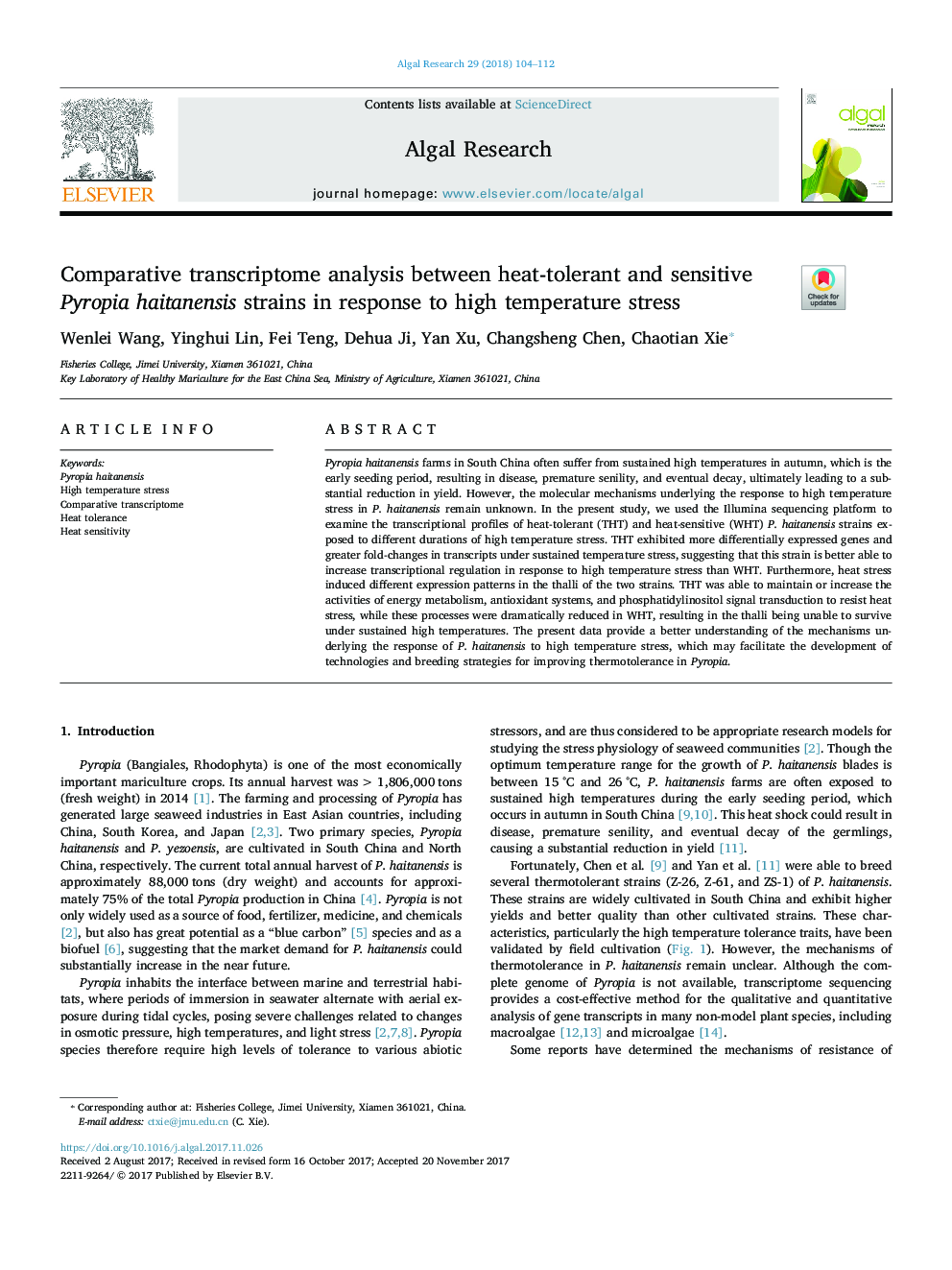| Article ID | Journal | Published Year | Pages | File Type |
|---|---|---|---|---|
| 8086219 | Algal Research | 2018 | 9 Pages |
Abstract
Pyropia haitanensis farms in South China often suffer from sustained high temperatures in autumn, which is the early seeding period, resulting in disease, premature senility, and eventual decay, ultimately leading to a substantial reduction in yield. However, the molecular mechanisms underlying the response to high temperature stress in P. haitanensis remain unknown. In the present study, we used the Illumina sequencing platform to examine the transcriptional profiles of heat-tolerant (THT) and heat-sensitive (WHT) P. haitanensis strains exposed to different durations of high temperature stress. THT exhibited more differentially expressed genes and greater fold-changes in transcripts under sustained temperature stress, suggesting that this strain is better able to increase transcriptional regulation in response to high temperature stress than WHT. Furthermore, heat stress induced different expression patterns in the thalli of the two strains. THT was able to maintain or increase the activities of energy metabolism, antioxidant systems, and phosphatidylinositol signal transduction to resist heat stress, while these processes were dramatically reduced in WHT, resulting in the thalli being unable to survive under sustained high temperatures. The present data provide a better understanding of the mechanisms underlying the response of P. haitanensis to high temperature stress, which may facilitate the development of technologies and breeding strategies for improving thermotolerance in Pyropia.
Keywords
Related Topics
Physical Sciences and Engineering
Energy
Renewable Energy, Sustainability and the Environment
Authors
Wenlei Wang, Yinghui Lin, Fei Teng, Dehua Ji, Yan Xu, Changsheng Chen, Chaotian Xie,
